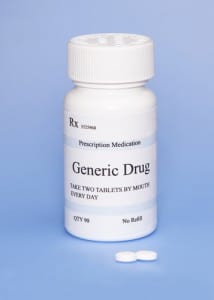Alabama Court Holds Brand-Name Pfizer Liable for Injuries from Generic Drug Counterparts

Although the Food and Drug Administration proposed a new regulation last winter that would allow generic drugs to update their labels on their own if personal injuries developed from the drug, as of this year, the regulation has not passed or gone into effect. Generic drugs still must use the same warning labels as their brand name counterparts, and in the US, patients injured by generic drugs cannot sue the pharmaceutical companies for their injuries.
Generic drugs have the same active ingredient as brand-name drugs, although they feature different inactive ingredients which could potentially affect how a patient metabolizes a drug, such as in the case of generic vs. brand-name Wellbutrin. However, the Alabama Supreme Court’s ruling suggests a strange alternative for personal injury plaintiffs: brand-name drugs must update their labels to reflect potential side effects and personal injury involving their generic counterparts. That way, the generic drugs’ labels will be up-to-date.
The case brought forth involves plaintiff Danny Weeks and his wife Vikki, after Danny developed tardive dyskinesia, a serious movement disorder, after taking a generic version of Pfizer’s Reglan. He sued Wyeth, the pharmaceutical manufacturer bought by Pfizer, for failure to warn about the drug’s side effects. Pfizer argued that it did not have a direct relationship to the consumer and therefore could not be held responsible for the generic drug’s problems. Pfizer’s argument “completely ignored the nature of prescription medication,” the court wrote. The consumer “cannot obtain Reglan or any other prescription medication directly from a prescription-drug manufacturer. The only way for a consumer to [do so] is for a physician or other medical professional authorized to write prescription to prescribe the medication to his or her patient.
“When the warning to the prescribing health care professional is inadequate, however, the manufacturer is directly liable to the patient for damage resulting from that failure,” the court continued. Pfizer vehemently disagreed with Alabama’s ruling, using other cases in other states to show what an “outlier” the state’s ruling was.
In similar cases, 29 other states, including Iowa’s Supreme Court and six federal courts of appeals, have all rejected the idea of brand-name drugs responsibility for generic drug injuries. “Those courts have recognized that subjecting brand-name manufacturers to perpetual liability for injuries resulting from generic products would stifle innovation,” the drug maker says in its statement. “This court creates a precedent that poses danger for the prescription-medicine industry, and, by extension, for all industry,” said Associate Justice Glenn Murdock, who wrote the dissention.
The Strom Law Firm Helps with Personal Injury Cases Related to Defective Drugs
If you have been harmed, or a loved one has been harmed or killed by a defective product or drug, the defective drug attorneys at the Strom Law Firm can help. You may be entitled to compensation through a personal injury lawsuit. We offer free, confidential consultations to discuss the facts of your case, so contact us today. 803.252.4800.

